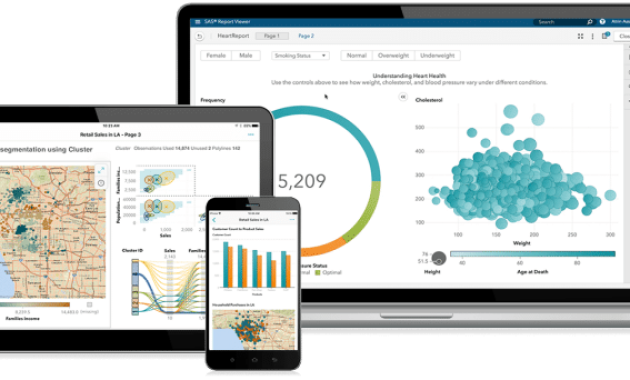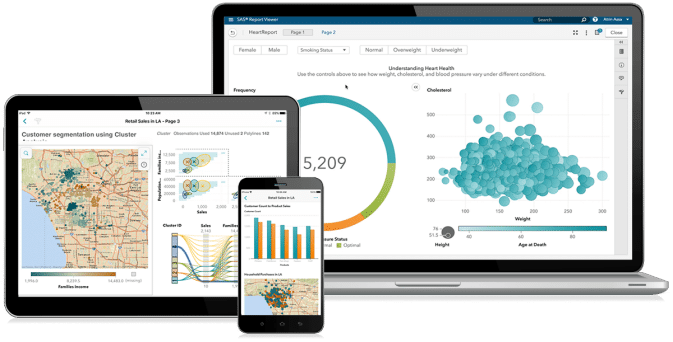
Leverage Business Intelligence Software for Sales: A Startup’s Guide to Growth
In the competitive landscape of the modern market, startups face an uphill battle. They must rapidly adapt, make data-driven decisions, and maximize efficiency. One powerful tool that can significantly impact a startup’s trajectory is business intelligence (BI) software. This article explores how startups can leverage business intelligence software for sales, driving growth and achieving their business objectives.
Business intelligence is the process of collecting, analyzing, and interpreting data to inform business decisions. BI software provides the tools and platforms to execute this process effectively. For startups, this means gaining insights into sales performance, customer behavior, and market trends. These insights enable data-driven strategies.
Understanding the Power of Data in Sales
Data is the lifeblood of modern business. It provides the fuel for informed decisions and strategic planning. Startups that understand the value of data are better positioned for success. This is particularly true for sales. By analyzing sales data, startups can identify patterns, trends, and opportunities. This allows them to optimize their sales processes, improve customer engagement, and increase revenue. Leverage business intelligence software for sales is crucial here.
For example, a startup can use BI software to track key performance indicators (KPIs) like conversion rates, customer acquisition costs (CAC), and customer lifetime value (CLTV). This data provides a clear picture of sales performance. It also helps identify areas for improvement. By analyzing this data, startups can refine their sales strategies, personalize their customer interactions, and ultimately, drive more sales.
Choosing the Right Business Intelligence Software
The market offers a wide range of business intelligence software options. Startups need to choose the right solution. The ideal choice will depend on their specific needs, budget, and technical capabilities. Several factors should be considered when selecting BI software:
- Scalability: The software should be able to scale as the startup grows.
- Ease of Use: The software should be user-friendly, with an intuitive interface.
- Integration: The software should integrate with existing sales and marketing tools.
- Reporting and Analytics: The software should provide robust reporting and analytics capabilities.
- Cost: The software should fit within the startup’s budget.
Some popular BI software solutions that are well-suited for startups include:
- Tableau: Known for its user-friendly interface and powerful data visualization capabilities.
- Power BI: Offers a wide range of features and integrates seamlessly with Microsoft products.
- Zoho Analytics: A cost-effective option with a focus on ease of use and reporting.
- Qlik Sense: Provides advanced analytics and data discovery capabilities.
Startups should carefully evaluate their options. They should also consider a free trial. This allows them to test the software before committing to a paid subscription. This is vital before you leverage business intelligence software for sales.
Implementing BI Software for Sales: A Step-by-Step Guide
Implementing BI software requires a strategic approach. Startups can follow these steps to ensure a successful implementation:
- Define Objectives: Clearly define the goals of using BI software. Identify the key metrics that will be tracked and analyzed.
- Choose the Right Data Sources: Determine which data sources will be integrated. This may include CRM systems, sales databases, and marketing automation platforms.
- Clean and Organize Data: Ensure that the data is clean, accurate, and properly formatted. This is critical for accurate analysis.
- Build Dashboards and Reports: Create dashboards and reports that visualize key metrics. This makes it easy to track performance and identify trends.
- Train Users: Provide training to sales and marketing teams on how to use the software. This ensures that everyone can effectively utilize the insights.
- Analyze and Iterate: Regularly analyze the data and reports. Use the insights to refine sales strategies and optimize processes.
Following these steps will help startups to successfully leverage business intelligence software for sales.
Key Benefits of Using BI Software in Sales
Business intelligence software offers a wide range of benefits for sales teams. These benefits can significantly improve performance and drive revenue growth. Some of the key advantages include:
- Improved Sales Performance: BI software provides real-time insights into sales performance. This allows sales teams to identify top performers, track progress against targets, and address any underperformance.
- Enhanced Customer Understanding: By analyzing customer data, BI software helps sales teams understand customer behavior. This includes purchase history, preferences, and demographics. This enables personalized sales interactions and improved customer engagement.
- Optimized Sales Processes: BI software can identify bottlenecks in the sales process. It can also highlight areas where efficiency can be improved. This leads to optimized sales processes.
- Increased Revenue: By improving sales performance, enhancing customer understanding, and optimizing processes, BI software can significantly increase revenue.
- Better Forecasting: BI software can help sales teams accurately forecast future sales. This allows businesses to better manage resources and plan for growth.
These benefits demonstrate the significant value of business intelligence software for sales teams.
Real-World Examples of BI Software in Action
Many startups have successfully used BI software to transform their sales operations. Consider these examples:
- Example 1: A SaaS startup used BI software to track customer acquisition costs. They identified that a specific marketing channel was generating high-quality leads. They then shifted their resources to that channel, resulting in a 20% increase in sales.
- Example 2: An e-commerce startup used BI software to analyze customer purchase data. They identified a trend in which customers who purchased a specific product were likely to purchase another product. They then created targeted promotions, leading to a 15% increase in cross-sales.
- Example 3: A food delivery startup used BI software to track delivery times and customer satisfaction. They identified that longer delivery times were negatively impacting customer satisfaction. They then optimized their delivery routes, resulting in a 10% improvement in customer satisfaction.
These examples demonstrate the practical applications of BI software in driving sales growth for startups. They show that startups can leverage business intelligence software for sales.
Challenges and How to Overcome Them
While BI software offers significant benefits, startups may encounter certain challenges during implementation. These challenges include:
- Data Quality: Poor data quality can lead to inaccurate insights. Startups should invest in data cleaning and validation processes.
- User Adoption: Resistance to change can hinder user adoption. Startups should provide adequate training and support to encourage user engagement.
- Data Security: Protecting sensitive data is crucial. Startups should implement robust security measures to safeguard their data.
- Integration Complexity: Integrating BI software with existing systems can be complex. Startups should carefully plan the integration process.
By proactively addressing these challenges, startups can maximize the effectiveness of their BI software implementation. They can also more efficiently leverage business intelligence software for sales.
The Future of BI in Sales for Startups
The future of BI in sales for startups is bright. As technology continues to evolve, BI software will become even more sophisticated. This will result in more powerful insights. Startups that embrace BI software will gain a significant competitive advantage. They will be able to make data-driven decisions. They will also be able to adapt quickly to changing market conditions.
The rise of artificial intelligence (AI) and machine learning (ML) is also transforming BI. AI and ML can automate data analysis. They can also provide predictive insights. This will allow startups to anticipate future trends. They can also proactively respond to customer needs. Startups that embrace these technologies will be at the forefront of innovation. They can then effectively leverage business intelligence software for sales.
Conclusion
Leveraging business intelligence software for sales is a strategic imperative for startups. It enables data-driven decision-making. It also improves sales performance, enhances customer understanding, and optimizes processes. By choosing the right software, implementing it effectively, and proactively addressing challenges, startups can unlock the full potential of BI. This will drive revenue growth and achieve their business objectives. Startups must also adopt the latest technologies. They can then remain competitive and thrive in today’s dynamic market. [See also: How to Build a Sales Funnel for Startups]

